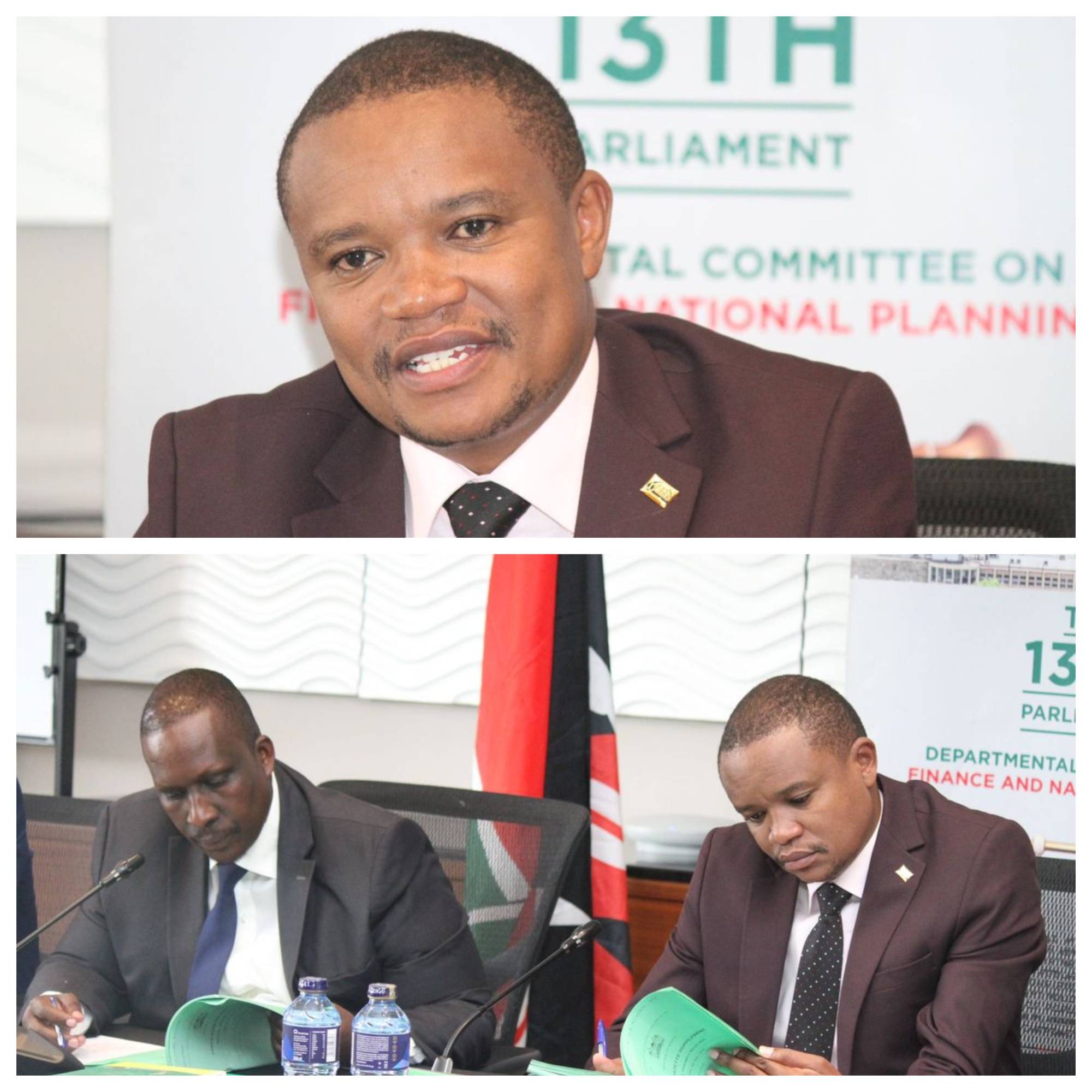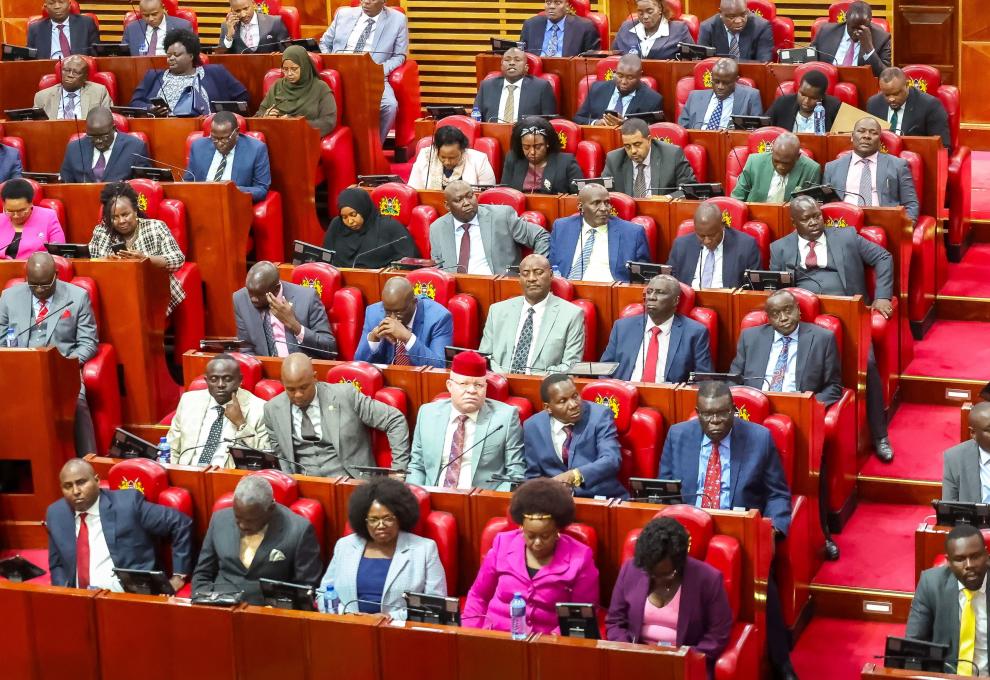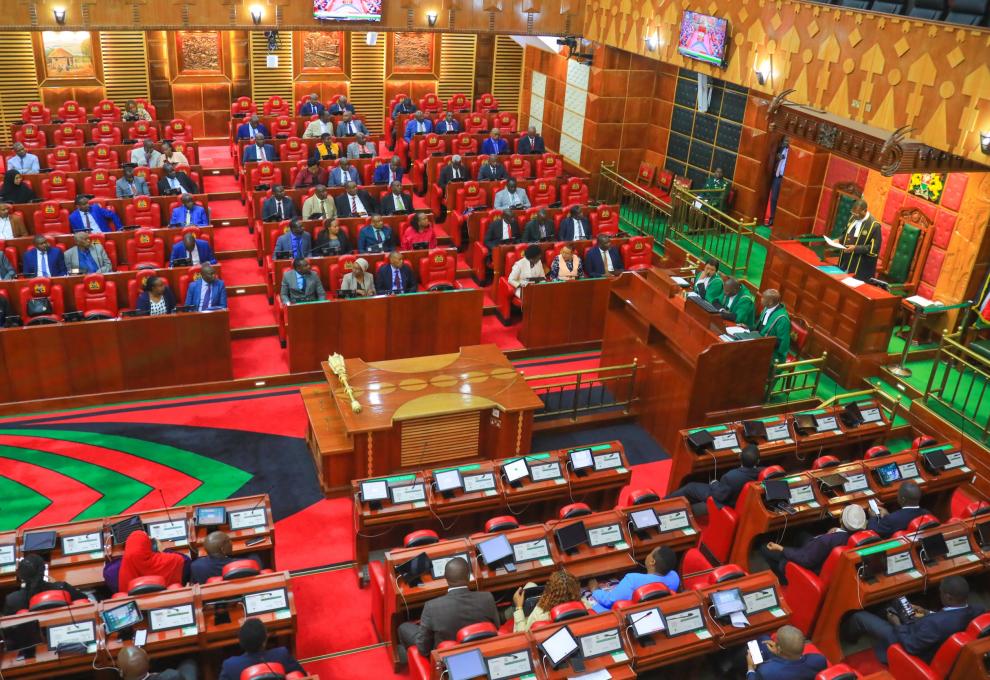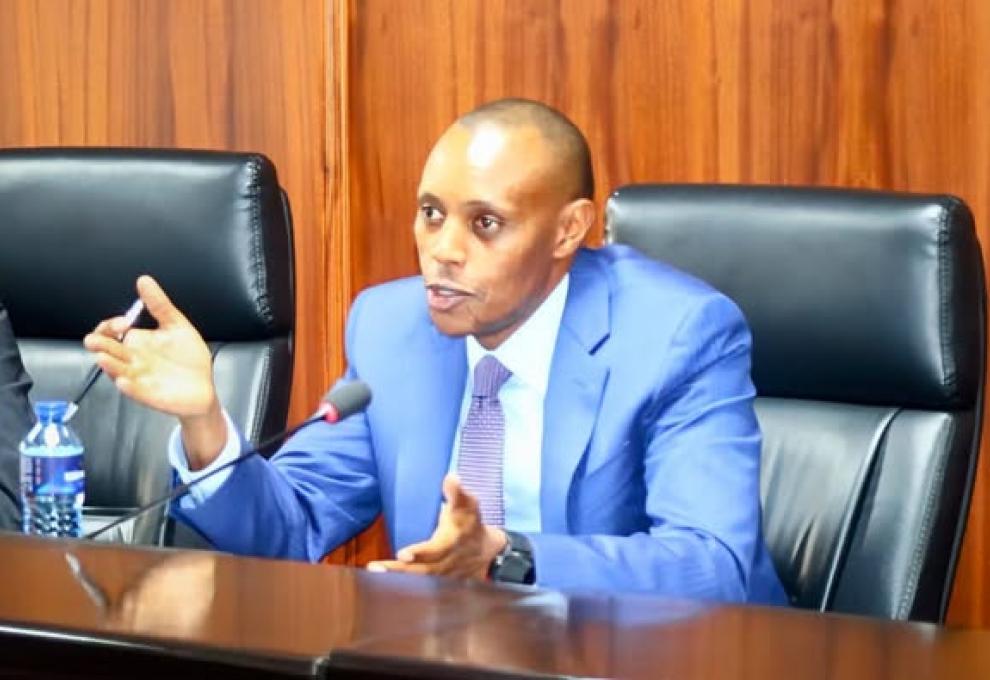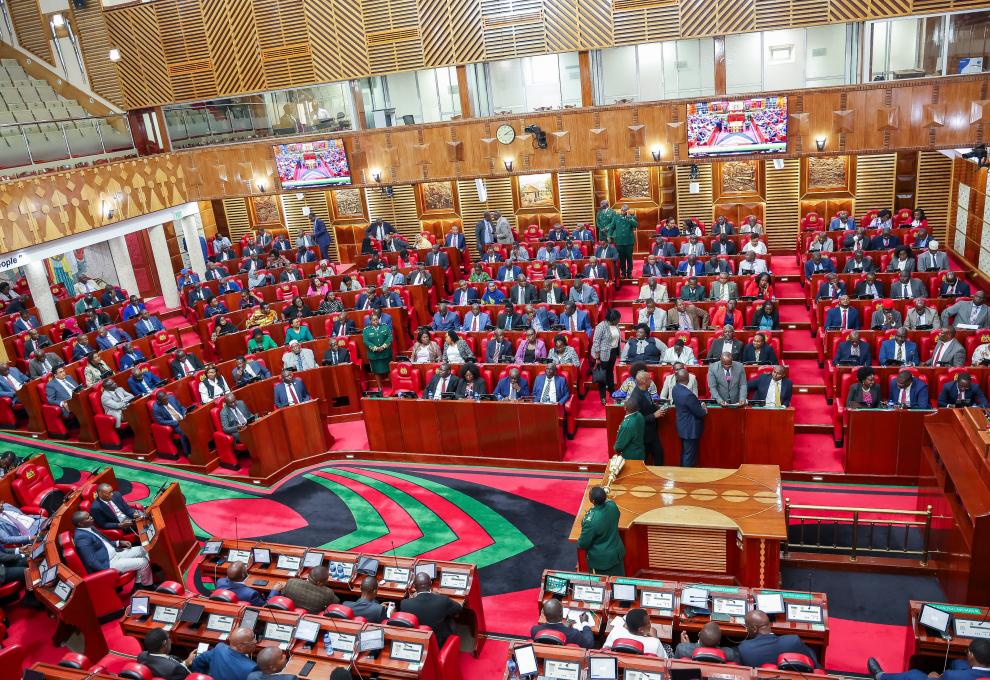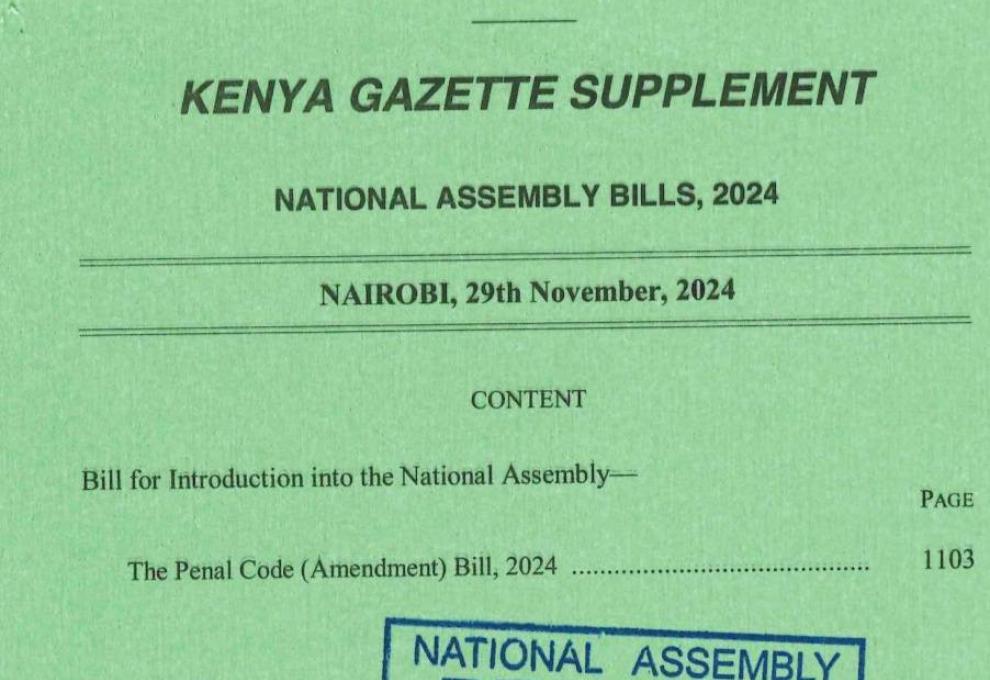𝐅𝐈𝐍𝐀𝐍𝐂𝐄 𝐂𝐎𝐌𝐌𝐈𝐓𝐓𝐄𝐄 𝐏𝐋𝐄𝐃𝐆𝐄𝐒 𝐓𝐎 𝐏𝐑𝐎𝐓𝐄𝐂𝐓 𝐓𝐇𝐄 𝐌𝐀𝐍𝐔𝐅𝐀𝐂𝐓𝐔𝐑𝐈𝐍𝐆 𝐒𝐄𝐂𝐓𝐎𝐑 𝐈𝐍 𝐁𝐈𝐋𝐋 𝐂𝐎𝐍𝐒𝐈𝐃𝐄𝐑𝐀𝐓𝐈𝐎𝐍
The National Assembly Departmental Committee on Finance and National Planning is keen to make Kenya a manufacturing country rather than a trading one, the Chairperson has said.
Hon. Kimani Kuria (Molo) made the assurance during engagements with various stakeholders who appeared before the Committee to make submissions on the Finance Bill, 2024.
This followed concerns from the stakeholders that some of the proposals in the Bill such as the introduction of excise duty on locally produced plastics would make Kenya less competitive as compared to her neighbours in the region.
Hon. Kimani however sought to reassure them that the Committee would not contemplate adopting revenue raising measures that would muzzle the local manufacturing sector, forcing the players to shift base to other countries within the region.
“I want to assure you that we have all intentions to protect our manufacturers. We want to make Kenya a manufacturing country rather than a trading one”, he noted.
Even as he made the assurance,soft drinks manufacturer, Coca-Cola Beverages Africa Proprietary Limited urged the Committee to consider dropping the provision that imposes a 10 percent levy on locally manufactured plastics.
The company appealed to the legislators to consider dropping the proposed amendment to Section 42 (G) of the Excise Duty Act by deleting the word “imported” on all plastics.
The Excise Duty Act currently imposes a 10 percent excise duty on only imported plastics under the tariff heading 3923.30.00 and 3923.90.90.
John Mwendwa, the Public Affairs, Communications and Sustainability Director posited that the introduction of the excise duty on imported plastics was meant to protect the local industry.
He informed the Committee that vibrant plastics’ manufacturing industry in Kenya which makes products for use by consumers and for use by other manufacturers to package their products.
He noted that with excise duty for plastic products in Uganda, Tanzania and Rwanda being zero rated, Kenya was likely to lose business to her neighbours.
“By imposing excise duty on locally produced plastics, this will increase the cost of production and thus increase the cost of goods that require use of plastic packaging,” Mr Mwendwa said.
“Coupled with other proposed levies on plastic packaging, this will result in multiple taxation on the same product, further increasing the costs of businesses and consumers”, he added.
While acknowledging this, Hon. Kimani agreed with Mr. Mwenda that deleting the word “imported” in Section 4G of the Excise Duty Act would essentially mean levying a 10 percent excise levy on all plastics whether locally or imported thus making local products more expensive than the imported plastics.
The company also urged the Committee to scrap the proposed eco levy which seeks to impose a Kshs. 150 per kilogramme on all articles of plastic packaging materials.
Mr Mwendwa argued that the imposition of the eco levy will increase the inflationary pressures, diminish disposable income, and deter both foreign and domestic investment activities within Kenya.
“The proposed levy should be removed to ensure that taxes or levies imposed are equitable and sustainable,” Mr Mwendwa said.
Coca Cola further urged the lawmakers to consider exempting commercial and agricultural vehicles from the 2.5 percent car circulation levy. They further proposed to the committee to lower the proposed rate from 2.5 percent to one percent.
Also seeking protection, Tile & Carpet Centre Limited urged the Committee to consider exempting white cement of tariff 2523.21.00 EAC CET 2022 from excise duty, or allow preferential importation of this product through duty remission scheme for manufacturers.
Their justification was that there is no local producer of white cement within EAC, a key raw material for tile adhesives, grouting and other cement-based products.
They further called for the removal of export and investment promotion levy of 3 % customs value covering sanitary fixtures, as there is only one local manufacturer who is still building capacity.
On their part, Technology Service Providers of Kenya (TESPOK) urged the Committee to drop the proposed amendment of the Excise Duty Tax Act 2015 to increase the excise duty on telephone, internet and data services to 20% and instead substitute the rate with 10 %.
The organization argued that Kenya has the highest tax contribution at 37 % of total market revenue compared to the Sub-Saharan average of 26 %.
TESPOK also proposed the removal of SIM Cards and cellular phones from the list of excisable services.
Appearing together with TESPOK, Wananchi Group proposed that the Committee considers retaining excise duty on internet at 15 % or consider lowering the rate to enhance connectivity, penetration of ICT Services in remote areas and promote growth within the industry.
Meanwhile, the Committee Members led by Umul-Kheir Kassim (Mandera County) have called for regular stakeholder engagements post-approval of the Finance Bill, to assess the impact of the law on the economy.
“Do not just engage with us during the consideration of the Finance Bill. Let us engage regularly to assess the impact of the approved law so it can inform how we approach the next Finance Bill”, she urged.
So far, the Committee has engaged 105 organised groups with 71 others set to have their memoranda reviewed .
The stakeholder engagements continue tomorrow with the Committee set to conduct a public hearing at the Kenyatta International Convention Center (KICC) on Monday June 10, 2024.



